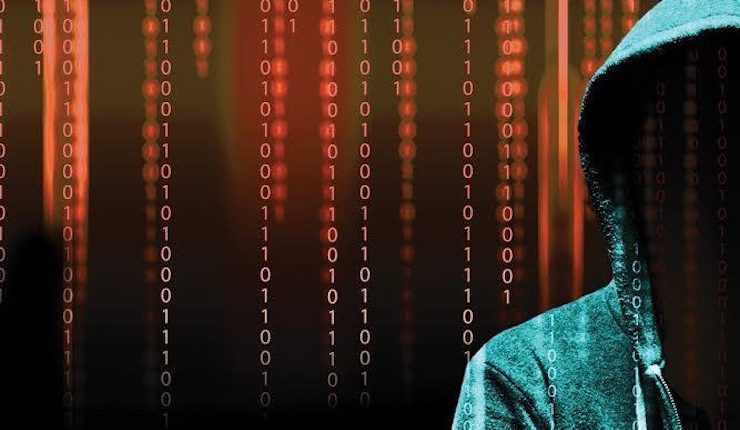Although news media are quick to portray hackers as outcasts and criminals, in fiction they are usually heroes and hacktivists, or the sidekicks who empower protagonists to save the day. What would Jack Bauer do without Chloe O’Brian? Felicity Smoak is the next best thing to a convenient “hacking arrow” on Arrow. And don’t forget that on Chuck, the title character was a nerd who could do things with technology that the supposedly cooler CIA spies couldn’t.
When I began writing my YA thriller, The Silence of Six, one of my biggest goals was to avoid the Hollywood cliché of making hacking look like magic. Five minutes of mashing the keyboard and you’re inside the Pentagon? That doesn’t happen, unless someone hands you a quick and easy exploit to work with. Five months of research and social engineering and gradually prying your way into the system is more like it.
I read a variety of nonfiction books to make sure the technology and terms I used in The Silence of Six were as accurate (or at least convincing) as possible, but as always, I turned to fiction for inspiration. Here are some of the books that helped me crack the code.
Little Brother by Cory Doctorow
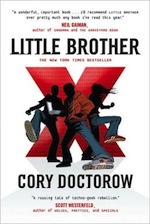 Doctorow’s chilling tale of four teenagers taking on Homeland Security with a bunch of hacked XBoxes to defend our civil liberties is the gold standard in YA hacker novels. It’s entertaining and informative, without getting too didactic—a great way to make young readers, or anyone really, more aware of social injustices we are still facing today. It’s also a terrific primer on hacking culture, for the curious. I’m just saying, you can actually do all that stuff if you wanted.
Doctorow’s chilling tale of four teenagers taking on Homeland Security with a bunch of hacked XBoxes to defend our civil liberties is the gold standard in YA hacker novels. It’s entertaining and informative, without getting too didactic—a great way to make young readers, or anyone really, more aware of social injustices we are still facing today. It’s also a terrific primer on hacking culture, for the curious. I’m just saying, you can actually do all that stuff if you wanted.
The Girl with the Dragon Tattoo by Stieg Larsson
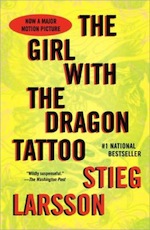 You’ve probably seen the Fincher movie, but the novel really drives home the amount of work and research that goes into hacking and solving decades-old mysteries—kind of like the difference between Gandalf popping into the library and learning about the One Ring in the film of The Fellowship of the Ring and him spending 17 years digging up the truth in the book. It should be dry reading, but it’s fascinating to follow Mikael Blomkvist and Lisbeth Salander as they meticulously piece together the puzzle, even if most of the “action” happens at a desk with stacks of photos or company records. The rest of Larsson’s Millenium series is also worth checking out, and you should watch the Swedish films if you have the chance.
You’ve probably seen the Fincher movie, but the novel really drives home the amount of work and research that goes into hacking and solving decades-old mysteries—kind of like the difference between Gandalf popping into the library and learning about the One Ring in the film of The Fellowship of the Ring and him spending 17 years digging up the truth in the book. It should be dry reading, but it’s fascinating to follow Mikael Blomkvist and Lisbeth Salander as they meticulously piece together the puzzle, even if most of the “action” happens at a desk with stacks of photos or company records. The rest of Larsson’s Millenium series is also worth checking out, and you should watch the Swedish films if you have the chance.
Hacktivist by Alyssa Milano, Jackson Lanzing, and Colin Kelly
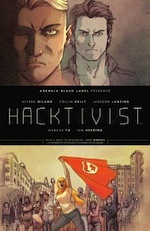 That’s right, this graphic novel was dreamed up by the same Milano of Who’s the Boss and Guardians of the Galaxy fame, who it turns out is very politically conscious. Comics may be the best way to represent hacking without resorting to the sometimes silly CGI representations in movies, or the monotony of someone typing at a keyboard for days. And Hacktivist is a timely story about a pervasive social network and two hackers who support activist efforts on the other side of the world, illustrating the positive power of media to effect change and how hackers can use their skills to do more than inconvenience millions of Playstation users.
That’s right, this graphic novel was dreamed up by the same Milano of Who’s the Boss and Guardians of the Galaxy fame, who it turns out is very politically conscious. Comics may be the best way to represent hacking without resorting to the sometimes silly CGI representations in movies, or the monotony of someone typing at a keyboard for days. And Hacktivist is a timely story about a pervasive social network and two hackers who support activist efforts on the other side of the world, illustrating the positive power of media to effect change and how hackers can use their skills to do more than inconvenience millions of Playstation users.
Alif the Unseen by G. Willow Wilson
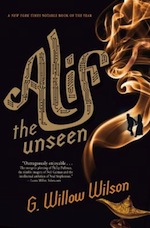 Okay, in Alif the Unseen hacking actually is magic, but it’s a stunning piece of fiction that is unlike anything I’ve ever read. It’s both contemporary and steeped in some of the oldest stories in the world, a cyber thriller that beautifully blends technology and fantasy—as well as a fascinating, real, moving look into the Middle East and the troubled life of a young hacker-for-hire. Plus there’s some romance! All I can say is you have to read it.
Okay, in Alif the Unseen hacking actually is magic, but it’s a stunning piece of fiction that is unlike anything I’ve ever read. It’s both contemporary and steeped in some of the oldest stories in the world, a cyber thriller that beautifully blends technology and fantasy—as well as a fascinating, real, moving look into the Middle East and the troubled life of a young hacker-for-hire. Plus there’s some romance! All I can say is you have to read it.
Ghost in the Wires: My Adventures as the World’s Most Wanted Hacker by Kevin Mitnick
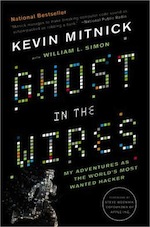 This memoir reads like fiction, but it’s all the more incredible because everything in it really happened. Mitnick is my go-to source for information on social engineering: the art of hacking people to get into places and systems you don’t belong. Starting out as a “phone phreak” like many of his generation of hackers, he pulled off some legendary exploits in person and from behind his computer screen. His storytelling style is compelling and breezy, every bit as exciting as a contemporary thriller, somewhat reminiscent of Frank W. Abagnale and Stan Redding’s Catch Me If You Can.
This memoir reads like fiction, but it’s all the more incredible because everything in it really happened. Mitnick is my go-to source for information on social engineering: the art of hacking people to get into places and systems you don’t belong. Starting out as a “phone phreak” like many of his generation of hackers, he pulled off some legendary exploits in person and from behind his computer screen. His storytelling style is compelling and breezy, every bit as exciting as a contemporary thriller, somewhat reminiscent of Frank W. Abagnale and Stan Redding’s Catch Me If You Can.
Originally published in March 2015 as part of our Five Books About series.
 E.C. Myers was assembled in the U.S. from Korean and German parts. He is the author of the Andre Norton Award–winning novel Fair Coin, Quantum Coin, and The Silence of Six, a thriller about teenage hackers and government conspiracies. You can find traces of him all over the internet, especially on Twitter @ecmyers.
E.C. Myers was assembled in the U.S. from Korean and German parts. He is the author of the Andre Norton Award–winning novel Fair Coin, Quantum Coin, and The Silence of Six, a thriller about teenage hackers and government conspiracies. You can find traces of him all over the internet, especially on Twitter @ecmyers.










